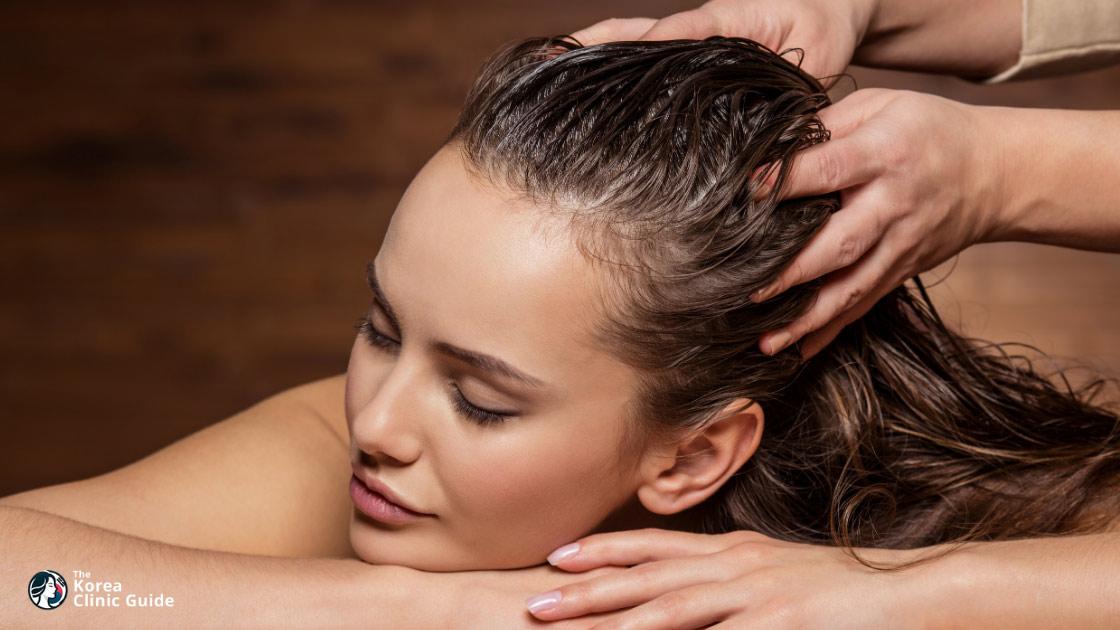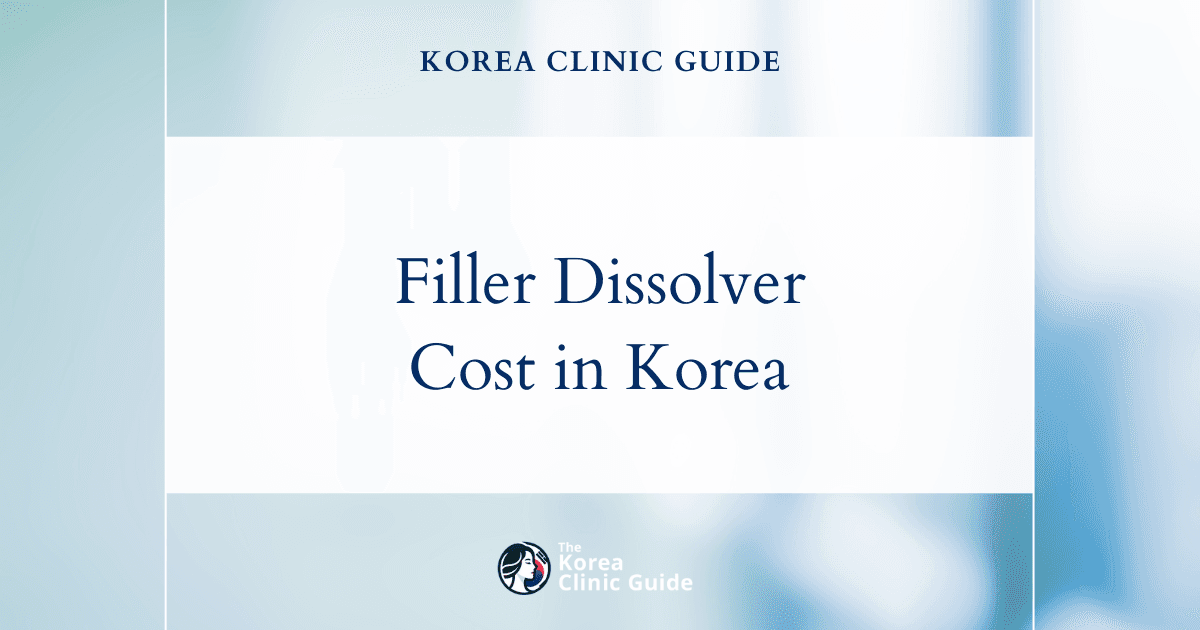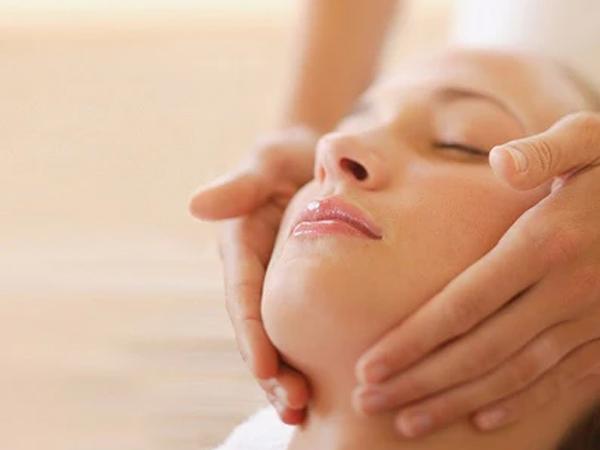Medical Tourism Blog
Skin Whitening Treatment in Korea (Seoul) | Best Clinics, Costs, Procedure Types & More

Table of contents
- What Is Skin Whitening Treatment?
- Best Clinics in Korea for Skin Whitening Treatment
- Skin Whitening Treatment in Korea
- Cost of Skin Whitening Treatment in Korea
- Alternatives to Skin Whitening Treatment
- Conclusion
Have you ever considered whether achieving a brighter, more even skin tone could boost your confidence and rejuvenate your appearance? With Seoul, Korea emerging as a global leader in skincare innovations, exploring the diverse range of cutting-edge skin whitening treatments available might just be the answer you've been searching for.

What Is Skin Whitening Treatment?
Skin whitening treatment encompasses a range of procedures aimed at lightening the skin tone by reducing the concentration of melanin, the natural pigment responsible for skin, hair, and eye color. These treatments have grown increasingly popular in various parts of the world, including Seoul, South Korea, which is renowned for its advanced skincare industry and innovation in cosmetic procedures.
Who Is It For?
Skin whitening treatments are sought by individuals who wish to achieve a lighter skin tone or address hyperpigmentation issues such as dark spots, melasma, and acne scars. These treatments are often chosen for aesthetic reasons but can also be part of managing specific skin conditions. It is important, however, for individuals to consult with a medical professional to ensure that such treatments are suitable for their skin type and health condition.
Types of Procedures
Chemical Peels
Chemical peels involve applying a chemical solution to the skin to exfoliate and remove the top layers. As the skin heals, new skin forms that is usually smoother and more even in tone. Various types of chemical peels can be used, including:
- Alpha Hydroxy Acid (AHA) Peels: Derived from natural substances like fruit, milk, and sugar, these peels are often used for mild skin discolorations.
- Beta Hydroxy Acid (BHA) Peels: Usually involving salicylic acid, these peels can penetrate deeper into the skin and are effective for treating acne-related dark spots.
- Trichloroacetic Acid (TCA) Peels: These are medium-strength peels that are effective for treating moderate to severe pigmentation issues.
Laser Treatments
Laser treatments employ concentrated light beams to target and break up melanin deposits in the skin. Popular laser treatments include:
- Q-switched Nd:YAG Laser: This laser targets deeper pigment and is particularly effective for treating melasma and other types of hyperpigmentation.
- Fractional CO2 Laser: Known for its precision, this laser can remove the outer layers of damaged skin, stimulating the growth of new, evenly pigmented skin.
Topical Creams and Serums
A variety of topical agents can be prescribed or recommended by dermatologists to lighten the skin. These may include ingredients such as:
- Hydroquinone: A strong skin-lightening agent that reduces melanin production.
- Retinoids: Vitamin A derivatives that promote skin cell turnover and can help fade dark spots.
- Vitamin C: Known for its antioxidant properties, it can help brighten the skin and reduce pigmentation.
- Kojic Acid: A natural product derived from fungi that can inhibit melanin production.
Intravenous Treatments
Intravenous (IV) treatments, sometimes called "glutathione drips," involve administering antioxidants like glutathione directly into the bloodstream. Glutathione is known for its skin-lightening and anti-aging properties, and it works by inhibiting melanin synthesis. This treatment requires professional supervision and has gained popularity for its quick and often dramatic results.
Microneedling
Microneedling involves using fine needles to create micro-injuries on the skin's surface. These controlled injuries stimulate the skin's natural healing processes, promoting collagen production and the formation of new skin cells. When combined with topical serums like vitamin C or kojic acid, microneedling can effectively address hyperpigmentation and uneven skin tone.
Factors to Consider
Before undergoing any skin whitening treatment, several factors should be considered to ensure safety and effectiveness:
- Skin Type: Different skin types react differently to various treatments. Consulting with a dermatologist helps tailor the treatment to individual skin requirements.
- Potential Side Effects: Some treatments may cause side effects like redness, irritation, or even worsening of pigmentation if not done properly.
- Longevity of Results: Some treatments may offer temporary results and require repeated sessions for maintenance.
- Cost: The expense of treatments can vary widely, so it’s important to factor in both the initial and potential ongoing costs.
Overall, skin whitening treatments offer a variety of options for those looking to achieve a lighter and more even skin tone. With South Korea at the forefront of skincare innovations, individuals have access to cutting-edge procedures and highly skilled practitioners. However, careful consideration and professional consultation are crucial to achieving desired outcomes safely.
Best Clinics in Korea for Skin Whitening Treatment
Listed below are the best clinics in Korea for skin whitening treatment:
| Clinic Name | Key Features | Special Techniques |
|---|---|---|
| Three Wishes Clinic - Myeongdong | Prime location near Myeongdong Station exit 9, high patient satisfaction, safe and innovative treatments, skilled professionals, comfortable environment | CO2 laser resurfacing, facial peels, Rejuran Healer, advanced skin therapies tailored for radiant skin |
| Chaum | Holistic health approach, advanced medical technology, personalized care, private check-up rooms, multidisciplinary team, award-winning clinic | Laser therapy, microdermabrasion, chemical peels, stem cell and hormone replacement therapies, comprehensive skin rejuvenation |
| Cheongdam Dear Clinic | Personalized treatment plans, ethical practice, advanced technology, comprehensive services, expert medical team, focus on natural beauty, holistic skin care | Laser therapies, skin boosters, specialized whitening treatments, pigmentation correction, integrated solutions for redness and acne |
Three Wishes Clinic - Myeongdong
Three Wishes Clinic – Myeongdong stands out as the premier destination for skin whitening treatment in Korea, thanks to its prime location just a minute’s walk from Myeongdong Station exit 9 in Seoul and its reputation for excellence in modern aesthetic medicine. The clinic is celebrated for its high patient satisfaction, as reflected in numerous positive reviews, and is committed to delivering safe, professional, and innovative treatments. With a comprehensive range of advanced skin therapies—including CO2 laser resurfacing, facial peels, and rejuvenating procedures like Rejuran Healer—Three Wishes Clinic offers tailored solutions for those seeking brighter, more radiant skin. Their team of skilled professionals utilizes the latest technology and techniques to ensure optimal results, making the clinic a trusted choice for both locals and international visitors looking to achieve their desired complexion in a comfortable and welcoming environment.
You can check out their website here: Three Wishes Clinic - Myeongdong Website
Chaum
Chaum stands out as the premier clinic for Skin Whitening Treatment in Korea due to its holistic approach to health, advanced medical technology, and commitment to personalized care. At Chaum, patients enjoy the tranquility and privacy of their own check-up rooms, where medical specialists and state-of-the-art equipment come directly to them, ensuring a comfortable and exclusive experience. The clinic offers a comprehensive range of health care programs, from advanced diagnostic check-ups and early cancer screening to cutting-edge anti-aging therapies like stem cell and hormone replacement treatments. Chaum’s dermatology and plastic surgery departments provide a variety of skin rejuvenation procedures, including laser therapy, microdermabrasion, and chemical peels, all tailored to enhance skin tone and appearance. Conveniently located at Sinnonhyeon Station, Chaum’s multidisciplinary team delivers expert care in a luxurious setting, supported by numerous awards that reflect their dedication to medical excellence and innovation. This unique combination of privacy, expertise, and comprehensive wellness services makes Chaum the best choice for anyone seeking effective and safe skin whitening treatments in Korea.
Find more about this clinic here: Chaum Website
Cheongdam Dear Clinic
Cheongdam Dear Clinic, located in the heart of Gangnam, Seoul, is a premier destination for those seeking advanced skin care and aesthetic treatments. Renowned as a sanctuary where the elegance of natural beauty is both celebrated and preserved, the clinic is distinguished by its commitment to honest, patient-centered care. Every client receives a meticulous evaluation, ensuring that only necessary and effective treatments are recommended. Cheongdam Dear Clinic’s unwavering dedication to integrity and patient welfare sets it apart, making it a trusted choice for individuals seeking genuine results, especially in the realm of skin whitening and rejuvenation.
Key reasons why Cheongdam Dear Clinic is the best choice for Skin Whitening Treatment:
- Personalized Approach: Each treatment plan is tailored to the individual’s unique skin concerns, ensuring optimal and natural-looking results.
- Ethical Practice: The clinic is known for its honesty—procedures are only recommended when they are truly beneficial, avoiding unnecessary treatments.
- Advanced Technology: Utilizes state-of-the-art equipment and the latest techniques in skin whitening, pigmentation correction, and rejuvenation.
- Comprehensive Services: Offers a wide range of procedures, from laser therapies and skin boosters to specialized whitening treatments, all under one roof.
- Expert Medical Team: Staffed by experienced professionals dedicated to upholding the highest standards of medical care and patient safety.
- Focus on Natural Beauty: Emphasizes enhancing and preserving the client’s natural features, rather than promoting artificial or excessive changes.
- Holistic Skin Care: Provides integrated solutions for pigmentation, redness, acne, and overall skin health, ensuring a radiant and even complexion.
With its blend of expertise, integrity, and cutting-edge treatments, Cheongdam Dear Clinic stands out as the leading clinic for anyone seeking effective and safe skin whitening solutions in Korea.
Find more about this clinic here: Cheongdam Dear Clinic Website
Skin Whitening Treatment in Korea
Korea has emerged as a global hub for cosmetic treatments, including skin whitening procedures that promise to deliver a more even and lighter skin tone. The popularity of these treatments among both locals and tourists has surged due to their effectiveness, advanced technology, and the high standards maintained by South Korean dermatologists.
Initial Consultation
The process usually begins with an initial consultation at a reputable clinic. During this examination, a dermatologist assesses your skin type, tone, and specific needs. Comprehensive evaluations often include skin analysis using specialized equipment to determine the most effective treatment plan for you. Clinics in Seoul, Korea are known for their thorough and detailed consultations, ensuring that patients are well-informed and comfortable before proceeding.
Treatment Options
Seoul, Korea offers a variety of skin whitening treatments, each with distinct mechanisms and advantages:
-
Topical Creams and Ointments: Dermatologists may prescribe skin-lightening creams containing ingredients like hydroquinone, kojic acid, or arbutin. These substances work to inhibit melanin production and lighten dark spots over time.
-
Chemical Peels: Mild acid solutions are applied to exfoliate the skin and remove dead cells, improving overall skin tone. This treatment may involve glycolic acid, salicylic acid, or lactic acid, and typically requires multiple sessions for optimal results.
-
Laser Treatments: Advanced laser technologies, such as Q-switched Nd:YAG lasers, target melanin deposits within the skin. These treatments break down the pigment particles, which are then naturally eliminated by the body. Laser treatments are among the most effective for dealing with stubborn pigmentation issues.
-
IV Glutathione Injections: Glutathione, an antioxidant, is administered intravenously to reduce melanin levels in the body. This method is popular for its relatively quick results and overall skin-brightening effects.
The Procedure
Depending on the chosen treatment, the procedure varies in duration and complexity:
-
Topical Treatments: These are usually applied during a short office visit or prescribed for home use.
-
Chemical Peels and Laser Treatments: Both types of procedures are performed in-clinic. After cleansing the skin, the solution or laser treatment is applied. Chemical peels may cause a stinging sensation, whereas laser treatments might feel like small rubber-band snaps against the skin. Local anesthesia or numbing cream is often used to minimize discomfort.
-
IV Glutathione Injections: These are typically administered over a series of sessions. Each session lasts around 30 minutes to an hour and involves inserting an IV line to deliver the glutathione directly into the bloodstream.
Post-Treatment Care
Post-treatment care is crucial for ensuring effective results and minimizing side effects:
-
Avoid Sun Exposure: Patients are advised to stay out of the sun and use high-SPF sunscreens to protect newly treated skin.
-
Moisturization: Maintaining hydration is essential. Dermatologists may recommend specific moisturizing products to aid in recovery.
-
Follow-up Visits: Regular follow-ups help monitor progress and address any complications early. During these visits, additional treatments or modifications to your skincare regimen may be suggested.
Results and Expectations
Results can vary based on individual skin types and the specific treatments used. It’s common for patients to notice gradual improvements over several weeks or months. Full results typically require multiple sessions, and maintaining a proper skincare routine is essential for lasting benefits.
Safety and Risks
While skin whitening treatments in Korea are generally considered safe, it’s important to choose a reputable clinic and experienced dermatologist. Potential risks include allergic reactions, irritation, and uneven skin tone. Discussing these risks during the initial consultation can help in making an informed decision.
In conclusion, undergoing skin whitening treatment in Korea is a structured and carefully monitored process designed to meet individual needs and ensure patient safety. The variety of available treatments, coupled with professional expertise, makes Korea an attractive destination for those seeking effective skin whitening solutions.
Cost of Skin Whitening Treatment in Korea
When considering skin whitening treatments in Seoul, Korea, it's essential to be aware of the various costs involved, from the treatment itself to travel-related expenses.
Treatment Costs
Skin whitening treatments in Korea vary in price depending on the type of procedure and the clinic's reputation. On average, the cost for treatments such as chemical peels, laser therapy, and glutathione injections can range between $300 to $1,000 per session. More advanced treatments like the Brightening Meso Cocktail or PRP (Platelet-Rich Plasma) therapy could cost upwards of $1,500 per session. Often, multiple sessions are recommended for optimal results, so the total cost could accumulate accordingly.
Costs of Flying to Korea
The cost of flying to Korea will depend largely on your point of origin, the time of year, and how far in advance you book your flight. On average, round-trip flights from the United States to Seoul range from $700 to $1,500. Flights from Europe are similarly priced, generally between $600 and $1,200. For travelers from neighboring Asian countries, round-trip airfare may be more affordable, ranging from $200 to $600.
Travel and Accommodation Expenses
Other travel expenses include accommodation, food, and transportation within Korea. The cost of accommodation can vary widely depending on your preferences. Budget hotels or guesthouses can cost as little as $30 to $60 per night, while mid-range hotels may charge between $80 and $150 per night. Luxury hotels can go upwards of $300 per night.
Food expenses in Korea are relatively economical. Dining at local restaurants or street food markets can range between $5 to $20 per meal, whereas meals at upscale restaurants might cost between $30 and $100.
Transportation in Korea is also reasonably priced. A single ride on the subway or bus costs around $1, and taxi fares start at approximately $3, with additional charges for distance. If you plan to explore the country, a Korea Rail Pass offers unlimited travel on Korail-operated trains and can range from $70 to $160 depending on the duration and class of the pass.
Additional Costs
Don't forget to factor in miscellaneous costs such as travel insurance, shopping, and any additional sightseeing you may wish to do while in Korea. Travel insurance can cost anywhere from $50 to $200, depending on the extent of coverage.
By budgeting for these various costs, you'll be well-prepared for your trip to Korea and can focus on achieving your desired results from the skin whitening treatments.
Alternatives to Skin Whitening Treatment
1. Sun Protection and Avoidance
One of the most fundamental ways to maintain healthy skin tone without resorting to whitening treatments is through proper sun protection and avoidance. Exposure to UV rays can cause hyperpigmentation and dark spots, which may prompt some individuals to seek whitening treatments. By protecting your skin from the sun, you can prevent these issues from arising in the first place.
- Use Sunscreen: Applying a broad-spectrum sunscreen with at least SPF 30 daily can shield your skin from harmful UV rays. This helps prevent darkening of existing spots and formation of new pigmentation.
- Wear Protective Clothing and Accessories: Hats, sunglasses, and clothing that covers your skin can provide an additional layer of protection against the sun.
- Seek Shade: Limit your sun exposure, especially between 10 a.m. and 4 p.m. when UV rays are strongest. This can significantly reduce the chances of pigmentation.
2. Skin Care Regimen with Antioxidants
A skincare regimen that includes antioxidants can help improve your skin's overall health and appearance without the need for whitening treatments. Antioxidants combat free radicals, which can cause skin damage and uneven skin tone.
- Vitamin C Serum: Incorporating a vitamin C serum into your daily skincare routine can help brighten your skin and reduce pigmentation. Vitamin C is known for its ability to inhibit melanin production, leading to a more even skin tone.
- Green Tea Extract: Green tea is rich in antioxidants that can reduce inflammation and prevent pigmentation issues. Using products containing green tea extract can improve your skin's appearance over time.
- Niacinamide: This powerful ingredient helps improve skin tone by reducing hyperpigmentation and boosting the skin's barrier function. It can be found in various skincare products, including serums and moisturizers.
3. Chemical Peels and Microdermabrasion
For those seeking more immediate results, chemical peels and microdermabrasion offer non-invasive alternatives to skin whitening treatments. These procedures help in exfoliating the skin and reducing pigmentation.
- Chemical Peels: This procedure involves applying a chemical solution to the skin, which causes it to exfoliate and eventually peel off. The new skin that forms is usually smoother and more even in tone. Chemical peels can vary in strength, with lighter peels having minimal downtime and deeper peels requiring some recovery time.
- Microdermabrasion: This technique involves using a special device to gently exfoliate the top layer of your skin. It can be effective in reducing hyperpigmentation and improving skin texture. Microdermabrasion sessions typically have little to no downtime, making it a convenient option for those with busy schedules.
- Combination Treatments: For optimal results, these procedures can be combined with other dermatological treatments like laser therapy under professional guidance. This multi-faceted approach can enhance the overall effectiveness in achieving an even skin tone.
By considering these alternatives, individuals can achieve their desired skin goals without undergoing skin whitening treatments.
Conclusion
In conclusion, skin whitening treatments in Korea have gained significant popularity, driven by a deep-rooted cultural preference for fair skin and the country's advanced dermatological innovations. While these treatments offer promising results and a plethora of options from creams to high-tech laser therapies, it is crucial for individuals to approach them with a thorough understanding and realistic expectations. Consulting with qualified dermatologists and ensuring the procedures are performed safely can mitigate potential risks and enhance the desired outcomes. Ultimately, skin health and individual beauty should be prioritized, underscoring the importance of informed and balanced decisions in the pursuit of aesthetic goals.















